Some notes on
the industries of Purbeck.
The title above suggests 'notes' and
that is all these are. An extensive history of Purbeck industrial
history would require several books - well beyond the scope of a few
web pages! This then is a skeleton list of those which have interested
me over the years.
The stone industry:
Purbeck stone is well known world-wide for its uses both in building
and in structural decoration. When polished, it presents a beautiful
and interesting finish. The types of stone from Purbeck are many - from
differing beds and fit for differing uses, from headstones, table-tops,
roof slabs and of course stone walling. Swanage, Langton and Acton are
riddled with old passages from the time when most stone was won
underground. In modern times, stone is almost exclusively worked from
the top down by excavation.
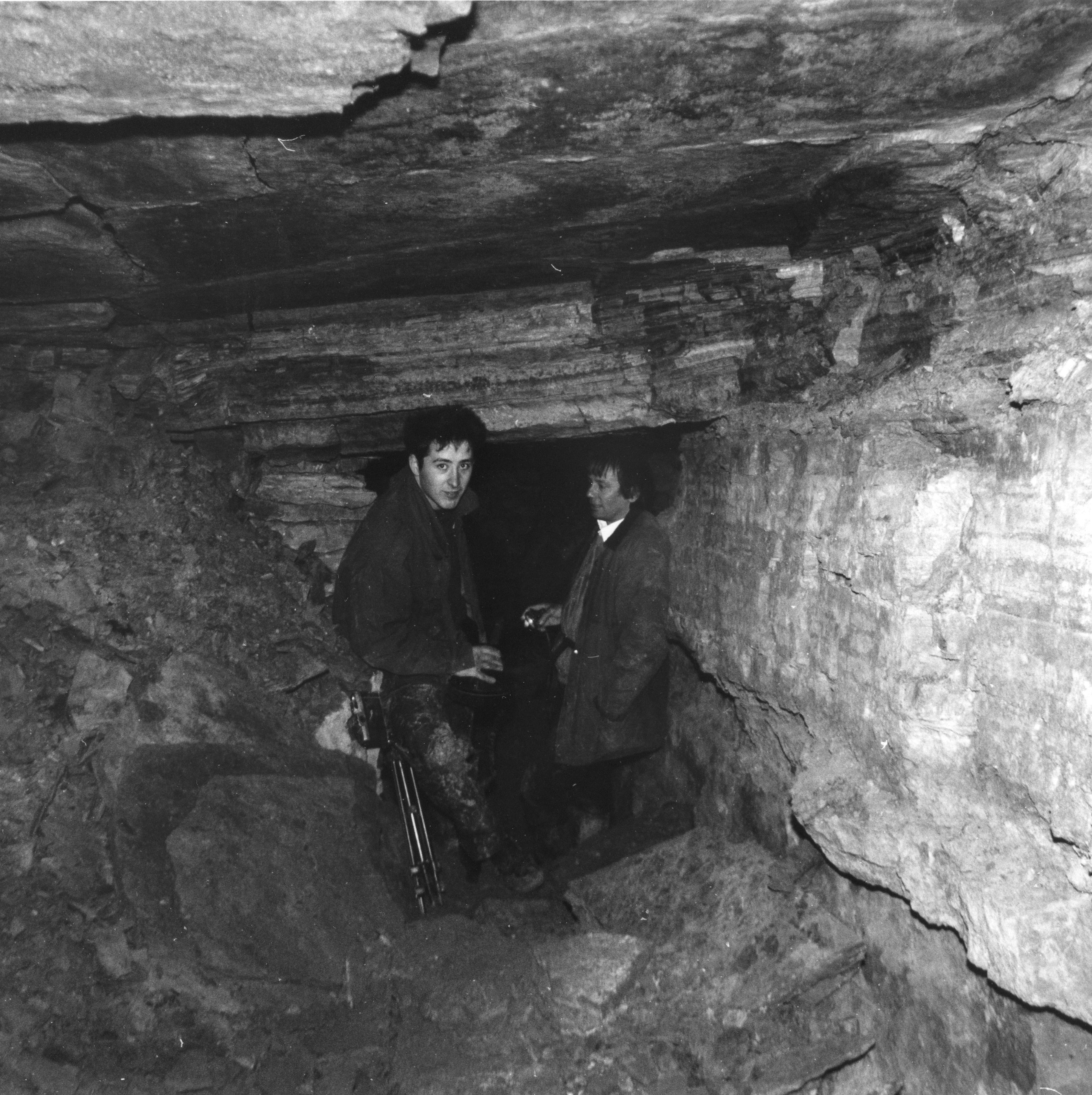 Left:
Left:
Friends explore an underground quarry at Swanage,
near
the caravan park.
Below:
The
remnants of a capstan used to haul stone from underground.
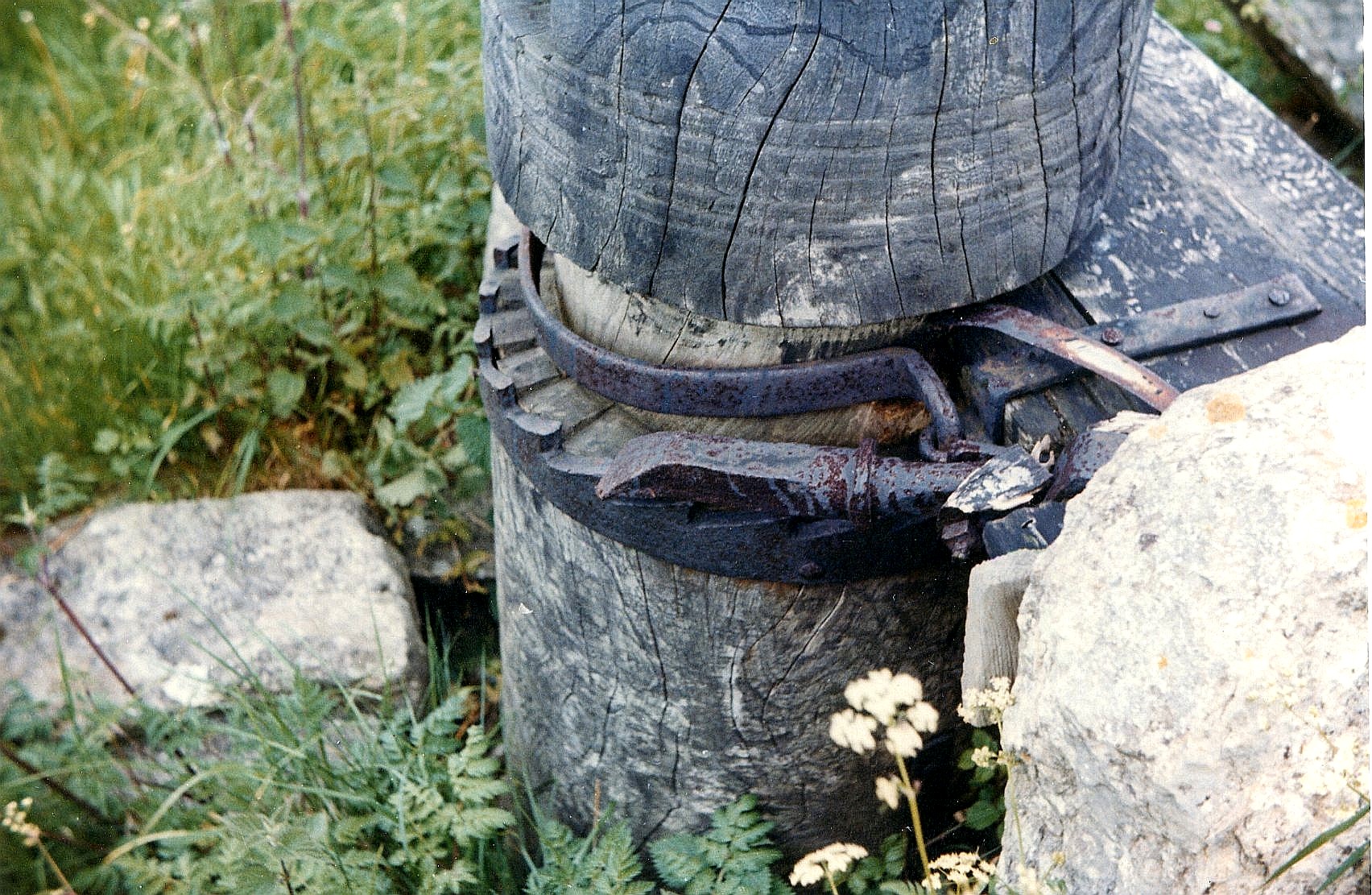
Other extractive industry includes Chalk and Marl from the hills and
clay mining. Clay was
dug in various locations around Purbeck for many years. It's usage
included not just the
usual pottery, but it can also appear in face-powder and toothpaste!
The clay industry was supported by a variety of narrow gauge railways.
The pictures below
show clay trains which were also used for carrying people in the
Rempstone area.
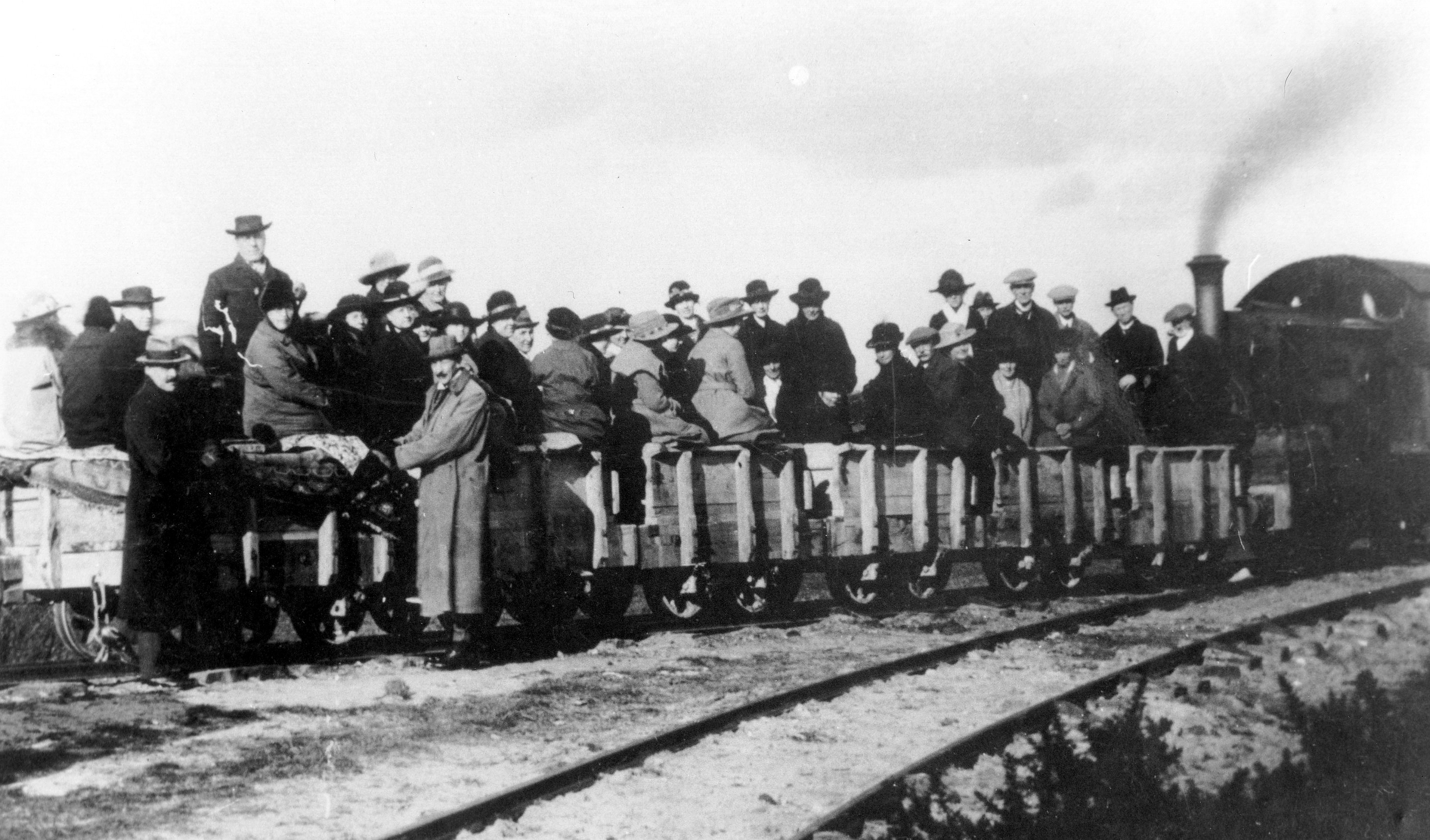
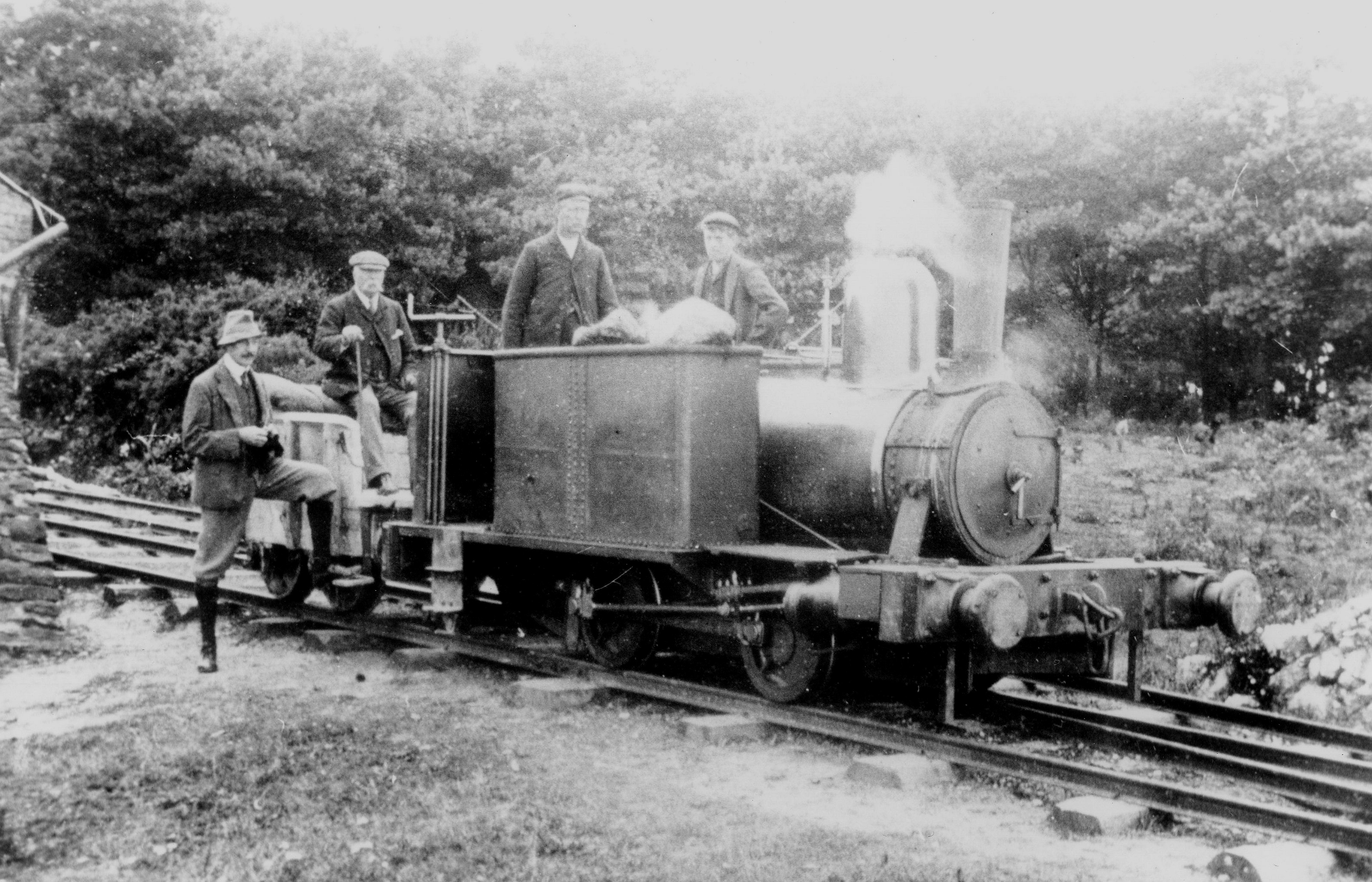
Modern
industry:
Whilst the industries mentioned above are still active and thereby also
'modern', I mention here a couple of newcomers; Nuclear and Oil. The
nuclear industry was well represented on the Winfrith site of the
Atomic Energy Authority. Now a minimal amount of nuclear work is
carried out there, mainly de-commissioning work. Parts of the site have
been demolished, whilst some buildings have been refurbished for
non-nuclear work - QinetiQ formerly the Defence Evaluation and Research
Agency being a major new tenant. Sadly, the vast amount of research
work carried out at Winfrith would appear to have been wasted, since
the British government now looks overseas for nuclear technology.
The later arrival in Purbeck was the oil & gas extraction carried
out in an exemplary manner by BP Exploration. Although the major
reserves of oil and gas are now reduced, walkers in the Rempstone area
may still find themselves coming across the treatment plant and an
assortment of 'nodding donkeys' around the heath and forestry.
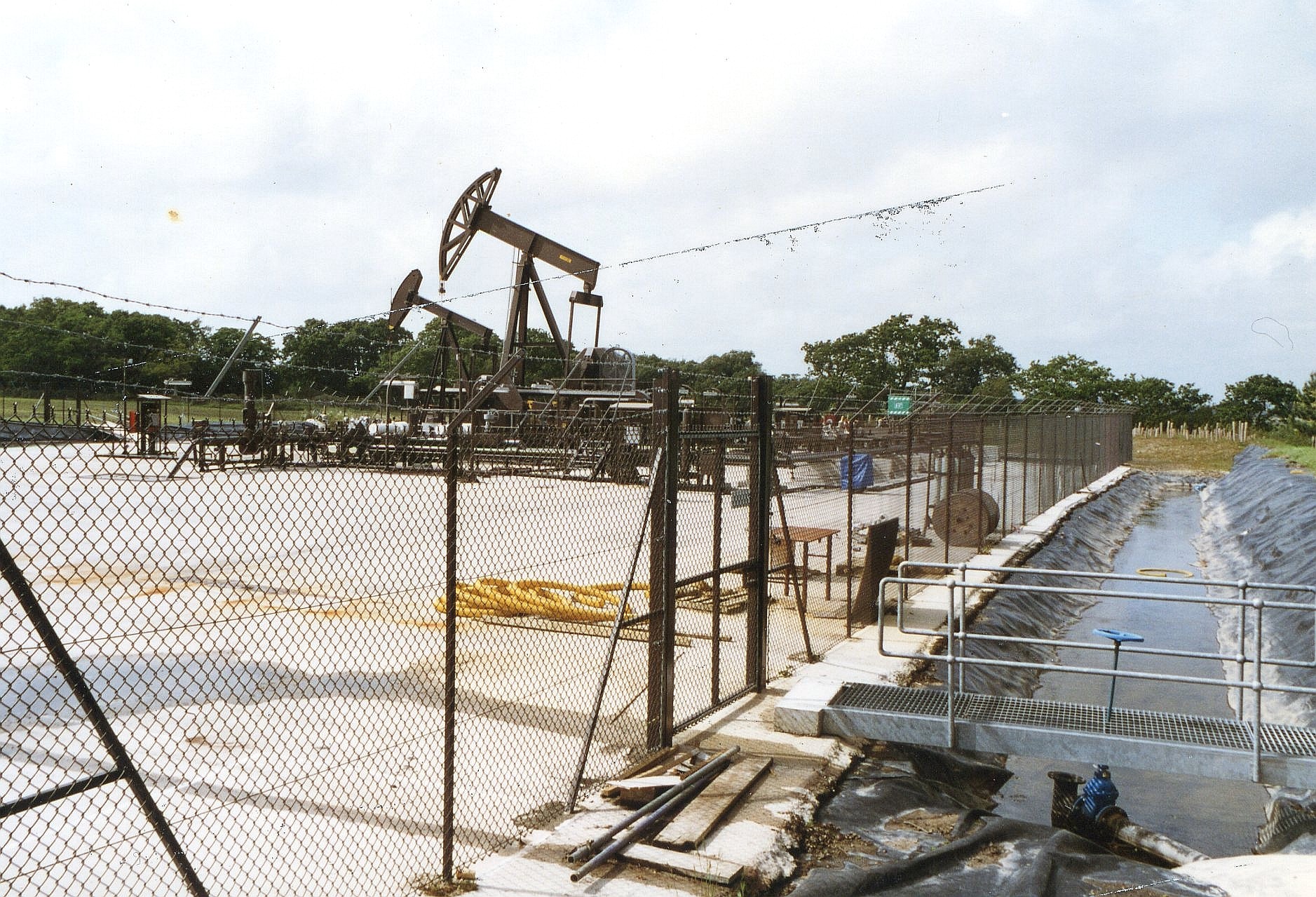
'Nodding Donkeys' in operation on the
Wytch Farm field.
Note the extensive channeling to catch any oil spillage. BP are notable
in their care for the landscape, archeology and environment.
 Left:
Left:


